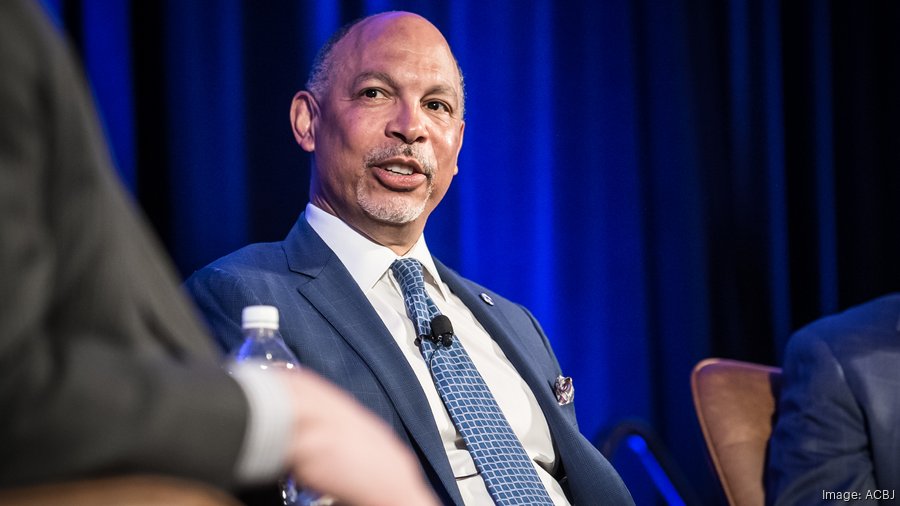Listen to this article 5 min
Eugene Woods, the co-CEO of Aurora Health Care’s parent company, says the United States needs to both double its investment in public health and simplify what he called the “mind-numbing burden of regulatory and administrative practices.”
Both efforts, according to Woods, are ways of driving down spending in the health care industry — one by reducing demand for care in expensive settings like hospitals and the other by easing the administrative burdens on health care systems.
“We really need to do much better in this country to invest in our public health infrastructure,” Woods said during a Harvard Business Review event earlier this month.
Woods, who leads Charlotte, North Carolina-based Advocate Health, says he’s been calling for increasing from $100 billion per year to $200 billion the country’s spending on public health and human services to prevent chronic disease.
Aurora Health Care of Milwaukee is the largest health care system in Wisconsin and part of Advocate Health's upper-Midwest wing that also includes Advocate Health Care of suburban Chicago. Advocate Health serves as the corporate administrative entity for Aurora Health Care and Advocate Health Care as well as Atrium Health, which is based in North Carolina.
Advocate Health said it ranks as the third-largest nonprofit integrated health system in the nation based on 2022 operating revenue.
The effort to boost public health could involve supporting better nutrition, access to exercise and preventive testing for chronic disorders such as diabetes, COPD, cardiovascular disease and cancer, he said in his 2023 book “Health, Hope and Healing For All.” Improving prevention would reduce the number of patients needing care in expensive settings, including hospitals, he said.
“There are studies that show for every dollar that we invest in public health, there's an $88 return,” he said during the “Leaders Who Make a Difference” conference by Harvard Business Review. “Obviously, we make our communities better, but also it's financially prudent to do this for this nation.”
The public health system must operate more cohesively and efficiently, partnering with health systems to create unifying and standardizing best practices for information-sharing and back-office functions, he said in his book.
As for what Woods called the “mind-numbing burden of regulatory and administrative practices,” he said his organization assigns thousands of employees to decipher diagnoses and billing codes “just to take care of patients.”
That situation requires Advocate Health to devote millions of dollars in resources and staff to comply with regulations created by the government and insurance companies, he said in his book.
“There are times where we take care of the patient, if you will, but because of paperwork, the reimbursement is delayed or denied,” Woods said during the Harvard Business event. “So that's one thing that I would say we really need to get better.”
Woods referred to diagnosis-coding systems when patients are admitted to one of Advocate Health’s 68 hospitals. He said there are 69,000 different codes that his staff needs to assess and ensure that Advocate Health is reimbursed by Medicare and Medicaid for services it provides.
“A lot of that burden falls on the physicians in terms of how they chart,” he said.
Advocate Health is working with the American Hospital Association to simplify health care, Woods said.
In his book, Woods acknowledged that health care systems must be part of the solution to drive down costs.
He argues that one answer is mergers and business combinations like the joint-operating agreement among Advocate Aurora Health of Wisconsin and Illinois and Atrium Health of North Carolina that created Advocate Health.
“Integrating our two legacy hospital systems provides the financial, technical and intellectual resources to bring health, hope and healing to our respective communities …. in a more cost-effective and affordable way,” he said in his book.
